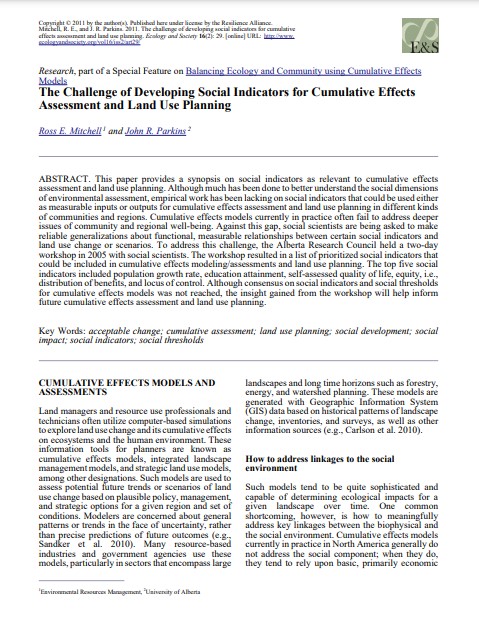The challenge of developing social indicators for cumulative effects assessment and land use planning.
Bosque Modelo:
Foothills
Temática:
Desarrollo humano
Tipo de documento:
Artículo científico
Resumen
This paper provides a synopsis on social indicators as relevant to cumulative effects assessment and land use planning. Although much has been done to better understand the social dimensions of environmental assessment, empirical work has been lacking on social indicators that could be used either as measurable inputs or outputs for cumulative effects assessment and land use planning in different kinds of communities and regions. Cumulative effects models currently in practice often fail to address deeper issues of community and regional well-being. Against this gap, social scientists are being asked to make reliable generalizations about functional, measurable relationships between certain social indicators and land use change or scenarios. To address this challenge, the Alberta Research Council held a two-day workshop in 2005 with social scientists. The workshop resulted in a list of prioritized social indicators that could be included in cumulative effects modeling/assessments and land use planning. The top five social indicators included population growth rate, education attainment, self-assessed quality of life, equity, i.e., distribution of benefits, and locus of control. Although consensus on social indicators and social thresholds for cumulative effects models was not reached, the insight gained from the workshop will help inform future cumulative effects assessment and land use planning.
Información Bibliográfica
Autor:
Mitchell, R.E. & Parkins, J.R.
Revista:
Ecology and Society
Año:
2011
N°:
2
País :
Canadá
Páginas:
-
Volumen:
16
Idioma:
Ingles
Palabras claves
acceptable change; cumulative assessment; land use planning; social development; social impact; social indicators; social thresholds





